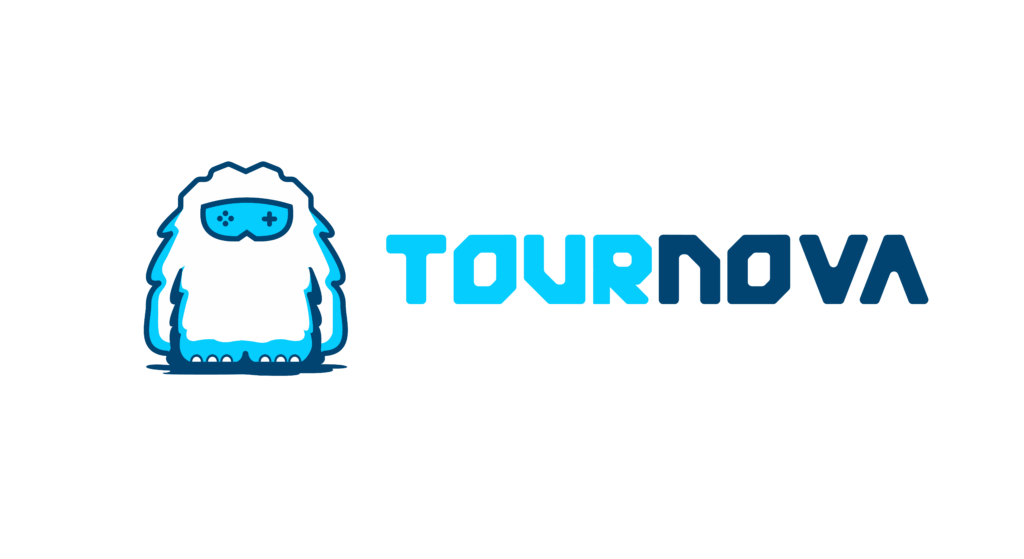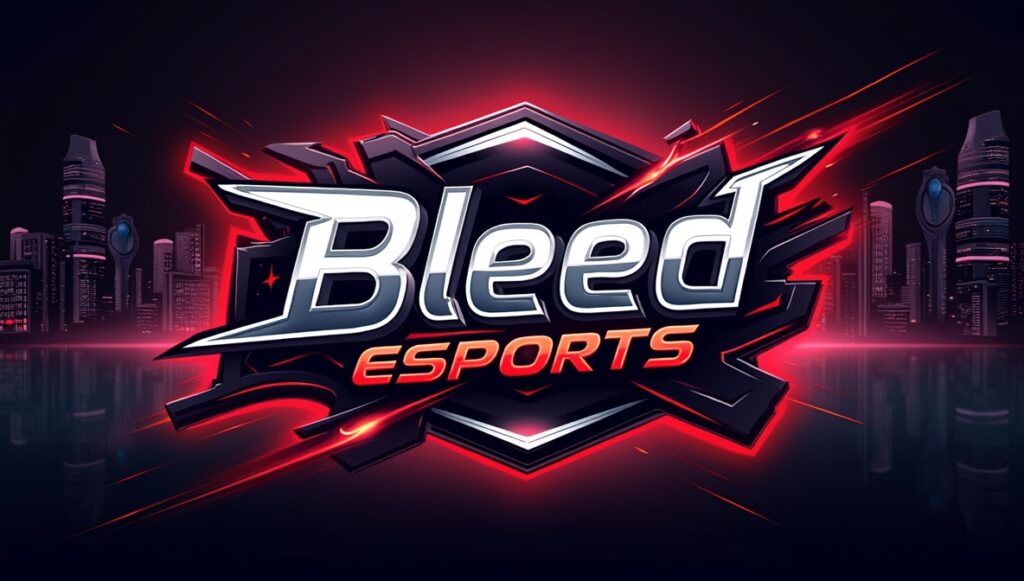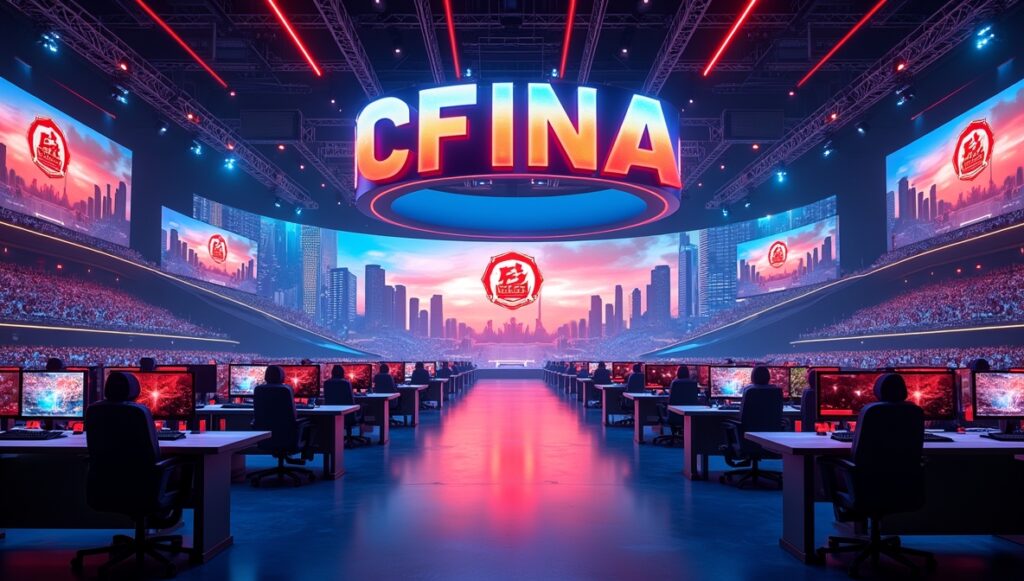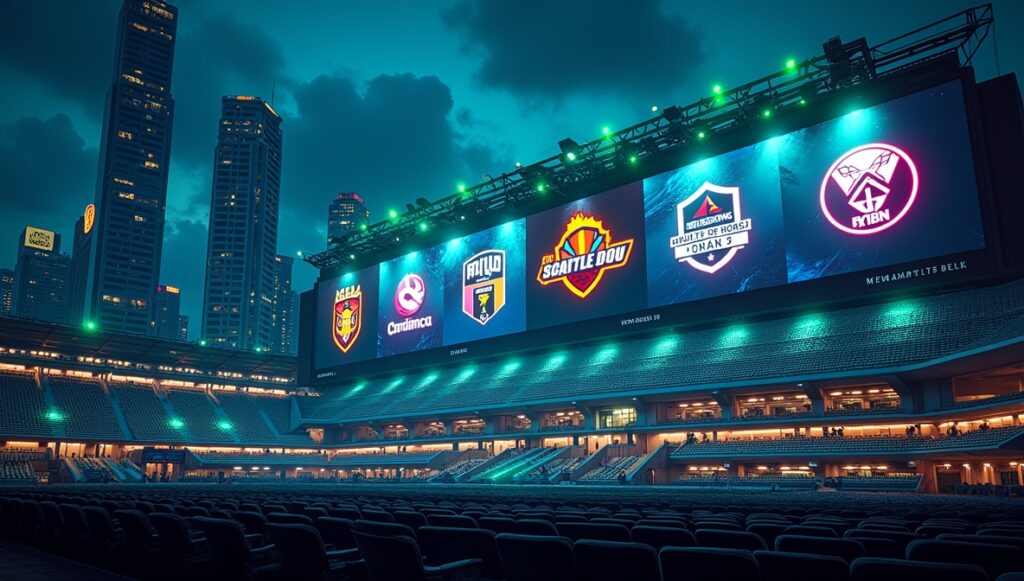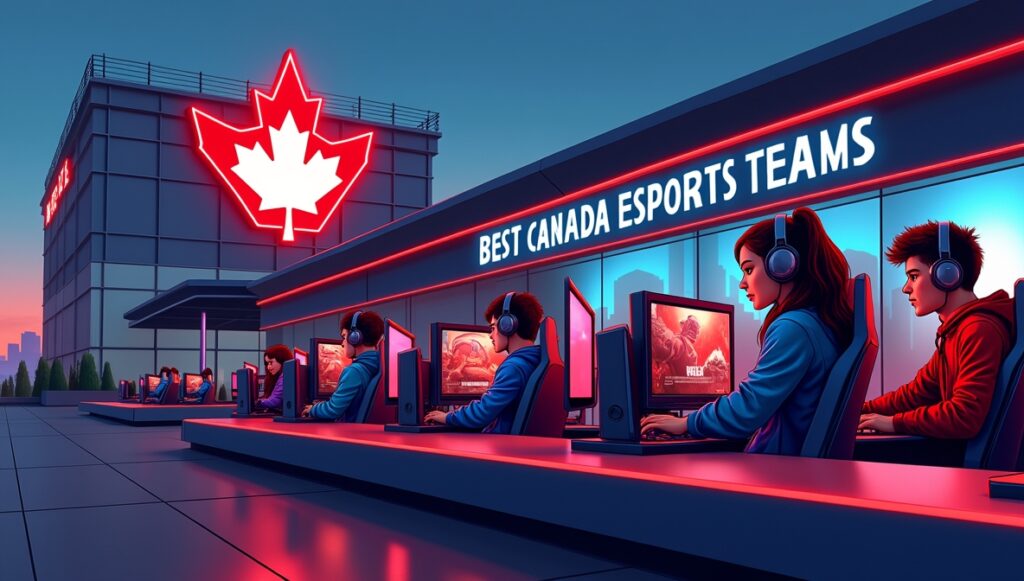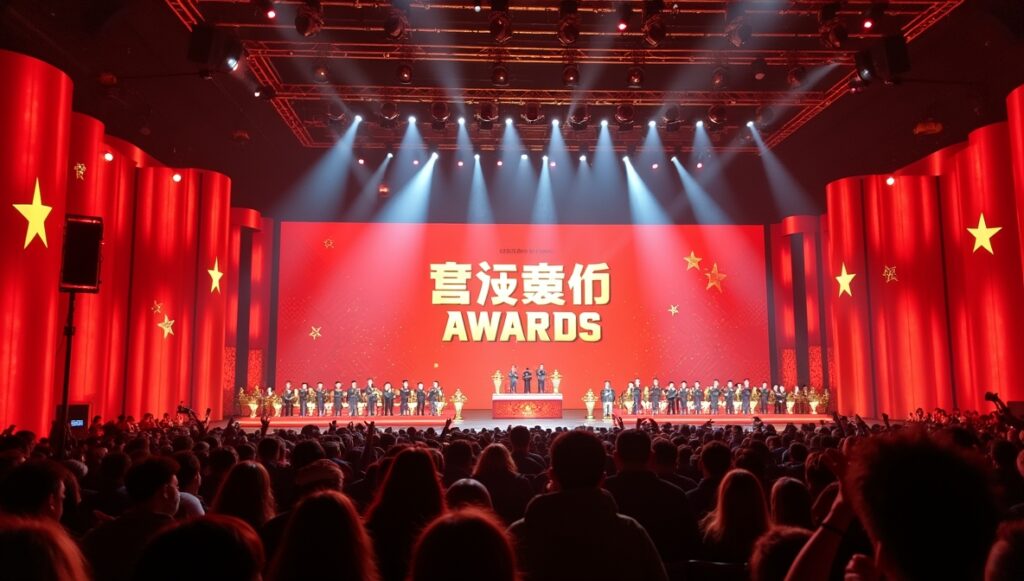Have you ever found yourself awestruck by the skill displayed in an esports tournament? It’s as if these players are conducting a symphony, every keystroke and mouse click in perfect harmony. Asia, undeniably, has emerged as the global powerhouse of competitive gaming, setting the standard for excellence in esports. This is especially true when considering the Top Asian Esports Teams. Just a few decades ago, gaming might have been dismissed as a mere pastime, but today, it’s a thriving multibillion-dollar industry, with Asia leading the charge. From South Korea’s iconic gaming culture to China’s rapidly growing scene and the passionate players in Southeast Asia, the region is home to some of the world’s most formidable teams.
Meet the Top Asian Esports Teams of 2025
This guide delves into these teams, celebrating their monumental achievements and the extraordinary players driving their success.
1. T1 (South Korea)
Founded in the heart of South Korea in 2002, T1 has long stood as a beacon of esports excellence. Known primarily for their dominance in League of Legends, T1 boasts legendary players like Faker, whose name has become synonymous with skill and strategy. Over the years, T1 has secured multiple World Championships, with prize pools accumulating into millions. Their partnerships with global brands like Samsung and Nike underscore their prestigious status and contribute significantly to their annual revenue.
2. Invictus Gaming (China)
Hailing from China, Invictus Gaming, a prominent member of the Top Asian Esports Teams, entered the competitive scene in 2011. They’ve made their mark across several games, notably Dota 2 and League of Legends. iG’s Dota 2 team made history by winning The International in 2012, becoming the first Chinese team to do so. Their League of Legends team clinched the World Championship in 2018, marking the first time a Chinese team won this title. Players like Song “RooKie” Eui-jin have been instrumental in iG’s success, known for their innovative playstyles and versatility. iG has established partnerships with various brands, including Corsair, Lab Series, Lilbetter, Bixin, Kuaishou, Mirinda, Chevrolet, Huya Live, and Wangyu Internet Cafe.
3. Team Secret (Southeast Asia)
Team Secret established its presence in 2014 and has become a powerful Dota 2 organization. They started operations in Europe and expanded into the Southeast Asian gaming territory through a partnership with OOKYO and by establishing a PUBG Mobile team. The strategic gameplay of Team Secret has been made possible by Puppey, alongside other noteworthy players, allowing them to win multiple Majors and gain fan popularity. Since their victory streak, the esports organization has clinched sponsorship deals with HyperX and Monster Energy, strengthening their financial stability.
4. Gen.G (South Korea)
Ever since Gen.G, one of the Top Asian Esports Teams, launched in 2017, they have established a significant presence in both League of Legends and Overwatch competitive play. The esports organization maintains bases in South Korea, the United States, and China, underscoriitseir international domain. The player Rascal, born Kim Kwang-hee, is a notable League of Legends professional who played as a top laner for Gen.G from November 2019 to November 2021. The organization generates substantial revenue from international tournaments and benefits from major brand partnerships, including Puma, with whom they extended a multi-year partnership in 2022 to launch a new global collection, and Mastercard.
5. Royal Never Give Up (China)
China’s esports landscape became closely associated with RNG after its establishment in May 2015. The organization achieved remarkable success in League of Legends, winning the League of Legends Pro League (LPL) Spring Playoffs in 2016, 2018, and 2021, as well as the Mid-Season Invitational (MSI) in 2018, 2021, and 2022. The lineup, led by the iconic AD Carry Jian “Uzi” Zi-Hao, was known for its flexible gameplay and strong determination. The team’s MSI triumphs increased their market value, leading to corporate partnerships with mainstream brands such as KFC and BMW.
6. PSG.LGD (China)
PSG.LGD is a dominant force in Dota 2 through a partnership established in April 2018 between Paris Saint-Germain F.C. (PSG) and LGD Gaming, a Chinese esports organization founded in 2009. The team has achieved significant success, notably finishing as runners-up at The International in 2018 and 2021. Their innovative strategies and consistent high-level performances have garnered them a substantial fan base. Key players, such as Wang “Ame” Chunyu, have been instrumental in their success, earning widespread admiration. PSG.LGD’s achievements have attracted major sponsorships, including partnerships with Monster Energy, enhancing its global market presence.
7. Dplus KIA (South Korea)
Dplus KIA, formerly known as DAMWON Gaming, ascended to world-class status in the esports arena beginning in 2017. The organization rebranded to DWG KIA in late 2020 through a partnership with Kia Motors and later to Dplus KIA in 2023. Their prowess in League of Legends, highlighted by players like Heo “ShowMaker” Su, led them to secure the 2020 League of Legends World Championship title. This synergy between gaming excellence and automotive industry backing has forged a unique and formidable team entity.
8. Talon Esports (Southeast Asia)
Established in 2017 and based in Hong Kong, Talon Esports, a rising star within the Top Asian Esports Teams, has excelled in Arena of Valor and Overwatch. They won the 2021 Arena of Valor World Cup as dtac Talon and secured the 2023 Arena of Valor International Championship. Their Overwatch division adapts well to the evolving meta, competing in regional tournaments. Talon has also found success in Garena World events, proving its versatility. They’ve secured key partnerships with brands like Red Bull, boosting their global presence. These achievements solidify Talon Esports as a dominant force in the esports industry.
9. Bigetron Esports (Indonesia)
Since 2017, Bigetron Esports has been a juggernaut in PUBG Mobile. Based in Indonesia, they have dominated international tournaments, notably winning the PUBG Mobile Club Open (PMCO) 2019 and PUBG Mobile World League (PMWL) 2020. Players like Zuxxy and Luxxy stand out for their teamwork and precision, securing major victories. Their success has led to impressive earnings and strengthened their global reputation. Supported by partnerships with brands like Indofood and Samsung, Bigetron’s influence continues to grow. Their consistent performance cements them as one of the strongest mobile esports organizations.
How Asian Teams Are Redefining Competitive Gaming
A series of elements establish why the Top Asian Esports Teams represent the peak of their genre. The Asian esports teams succeed because their perfectly organized training centers unite professional coaching elements with modern technological integrations. Instead of focusing on extended practice times, team members should focus on practicing effectively. Global teams benefit from adaptable strategies that allow them to create pioneering approaches to gaming that transform worldwide conventions. Their substantial investments toward maintaining player health and enhancing skills create highly unified groups with special teamwork capabilities. The comprehensive method that these teams implement separates them from others, leading to their success against international competitors.

Similar to Asia’s dominant esports teams, Tournova helps tournament participants reach global success by providing an innovative tournament management system that combines team strategy with training commitment. Our platform’s powerful capabilities provide an integrated hub that duplicates the methodical esports organizational models that have produced champions like T1 and Invictus Gaming. Our platform utilizes Discord and Telegram to simplify tournament management features, which makes it simple for users to focus on their skill development and competitive growth.
Tournova strengthens its support of the model seen in Top Asian Esports Teams through controlled tokens that replicate Asian sponsorship-based growth strategies by delivering valuable rewards tied to player performance and engagement. The ecosystem enables players to earn tokens in exchange for their gameplay activities, which bridges the virtual and real sponsorship dynamics to strengthen community growth. Our platform creates a unique position through its gaming levels integration because it serves as both a community development center and a performance catalyst that builds esports culture in much the same way Asian teams build their success globally.
In the End
The Asian esports world is a fascinating blend of cultural dedication, strategic innovation, and technological advancement. These teams aren’t just participants; they are pioneers, consistently pushing the boundaries and setting a new bar for what excellence looks like in competitive gaming. As we look toward the future, one thing is clear: Asia’s esports teams will continue to dominate, inspire, and redefine the gaming landscape for years to come.
Frequently Asked Questions
1. What challenges do Asian esports teams face in global tournaments?
Asian teams often deal with logistical challenges, such as time zone differences and language barriers, affecting their preparation and adaptation to different competitive environments.
2. How do Asian esports teams manage player burnout?
To mitigate burnout, top teams invest in mental health resources, ensure balanced schedules, and allow for regular off-season breaks to maintain player well-being.
3. What role do fans play in the success of Asian esports teams?
Fans provide crucial support through viewership, merchandise purchases, and social media engagement, which enhances team visibility and attracts sponsorships.
4. Are there esports academies in Asia for young aspiring players?
Yes, countries like South Korea and China boast well-established esports academies that train young talents, providing pathways into professional gaming careers.
